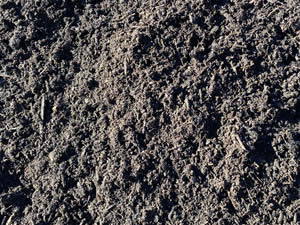
As a responsible gardener, you may be looking for eco-friendly alternatives to synthetic fertilizers and pesticides. One sustainable and organic option is using wood chips as mulch in your garden. Not only do wood chips help retain moisture and suppress weeds, but they also enrich the soil as they break down over time. In this guide, we will explore the benefits of using wood chips as organic mulch and provide you with tips on how to incorporate them into your gardening routine.
Benefits of Using Wood Chips as Organic Mulch
Wood chips offer numerous advantages when used as organic mulch in your garden. Here are some of the key benefits:
1. Soil Enrichment
- As wood chips decompose, they release nutrients into the soil, enriching it naturally.
- This process improves soil structure and fertility over time, promoting healthy plant growth.
2. Weed Suppression
- Thick layers of wood chips can help smother weeds by blocking out sunlight and preventing weed seeds from germinating.
- Less weeding means less time spent maintaining your garden and more time enjoying it.
3. Moisture Retention
- Wood chips act as a protective barrier, reducing evaporation and helping the soil retain moisture.
- This can be particularly beneficial during hot summer months or in dry climates where water conservation is essential.
Choosing the Right Type of Wood Chips
When selecting wood chips for mulching, it's essential to choose the right type to ensure optimal results. Here are some factors to consider:
1. Hardwood vs. Softwood
Hardwood chips, such as oak or maple, decompose at a slower rate and are more durable than softwood chips, like pine or cedar. Softwood chips may be more aesthetically pleasing but will break down quicker.
2. Fresh vs. Aged Wood Chips
Fresh wood chips can deplete nitrogen from the soil as they decompose. Aged wood chips have already undergone this process, making them a better choice for mulching around plants.
3. Size of Wood Chips
Smaller wood chips break down faster but may be less effective at suppressing weeds. Larger wood chips provide better coverage and insulation but take longer to decompose.
How to Apply Wood Chips as Mulch
Properly applying wood chips as mulch is crucial to maximizing their benefits and ensuring the health of your garden. Follow these steps for successful mulching:
1. Prepare the Area
- Clean the area of weeds and debris before applying the wood chips.
- Ensure the soil is well-watered to promote decomposition and nutrient absorption.
2. Apply the Wood Chips
- Spread a layer of wood chips 2-4 inches thick around your plants, leaving a small gap around the stems to prevent moisture-related issues.
- Avoid piling wood chips against the trunks of trees or shrubs to prevent rot and pest infestations.
3. Maintain the Mulch
- Check the mulch periodically and replenish it as needed to maintain the desired thickness.
- Turn the wood chips occasionally to promote even decomposition and prevent mold or fungal growth.
Tips for Using Wood Chips as Mulch
To make the most of wood chips as organic mulch in your garden, consider the following tips:
1. Monitor Soil Moisture
- Adjust the thickness of the wood chip layer based on your soil's moisture levels and drainage capacity.
- Water deeply before mulching to ensure the soil is adequately hydrated before adding wood chips.
2. Combine with Other Mulching Materials
- Layer wood chips with other organic materials like compost or straw to create a diverse and nutrient-rich mulch blend.
- This combination can enhance soil health and provide a balanced mix of nutrients for your plants.
3. Be Mindful of Tree Species
- Avoid using wood chips from black walnut trees, as they contain a natural herbicide that can inhibit plant growth.
- Opt for wood chips from fruit trees or other hardwoods for safe and effective mulching.
Conclusion
By incorporating wood chips as organic mulch in your garden, you can promote soil health, suppress weeds, and conserve moisture in a sustainable and eco-friendly way. Remember to choose the right type of wood chips, apply them correctly, and follow our tips for optimal results. With proper care and maintenance, wood chips can be a valuable addition to your gardening routine, benefiting both your plants and the environment.


